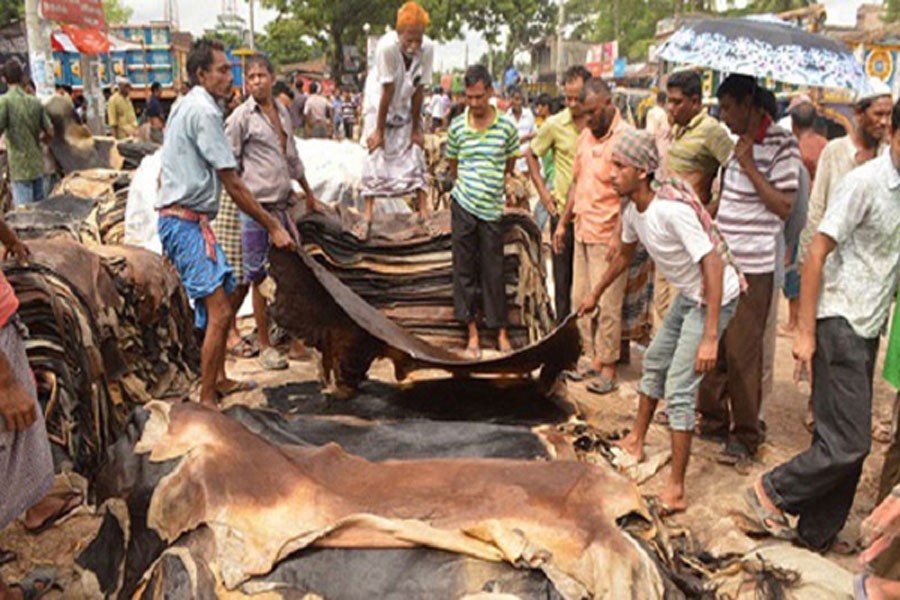
Published :
Updated :

The seasonal rawhide traders have again faced losses during this Eid-ul-Adha as they had to sell their items at a price lower than that fixed by the government. At the wholesale rawhide market at Posta in the old Dhaka, for example, the seasonal dealers were reportedly offered half the official rate for their rawhide and they had to accept that to avoid a hundred per cent loss. Leading hide merchants, on the other hand, claimed that they bought the hides from the small traders at government-decided rates. However, they admitted to have returned some of the hides, the quality of which, they said, deteriorated due to the delays in bringing those hides to their end.
It is worthwhile to note at this point that last year saw the worst that local level rawhide dealers ever experienced. During last year's Eid-ul-Adha, the prime time for rawhide collection, many traders had to dump the hides they bought in the ditches as their prices reached rock bottom. As a result, a large number of those traditional rawhide dealers went broke. As such, with fewer local level rawhide collectors this year, large volumes of hides in the districts remained uncollected. The issue has been further compounded by the lack of required preservation facilities in the districts. Not surprisingly, huge quantities of rawhides in Jashore, Rangpur, Chittagong and Sylhet regions were learnt to have been left to rot. This is unfortunate for a sector of the economy that brings the highest sum of export earnings for the country after the Readymade Garments (RMG).
In this connection, the hide merchants pointed mostly to the communication disruption caused by the lockdown for the seasonal traders' failure to collect the hides in time and bringing those to the wholesalers in desired quantities. Whatever the reason for this setback, a colossal amount of this precious raw material for the foreign exchange earning leather and footwear industries has been wasted. Also, a large number of small traders who earned a living by selling rawhide collected during Eid-ul-Adha may have lost their only source of livelihood. The government is required to take serious note of the matter. For it is not for the first time that the small rawhide dealers have got a raw deal for no fault of their own. If no action is taken to improve their situation, there will be still fewer rawhide traders during the next Eid. That will be real bad news for the leather sector in general.
On this score, the authorities should mount a strong monitoring regime to ensure that next time the seasonal hide traders do get a fair deal for their goods. As they play a crucial role in collecting and transporting rawhides during the peak business time of Eid-ul-Adha every year, they should be provided with stimulus-like government incentives so they may stay in business. At the same time, facilities should be built at the district and upazila levels where rawhides could be preserved and protected from getting damaged. This issue is important for the simple reason that on it depends the country's second largest export sector worth a billion dollar. What is at stake here is 70 per cent of all the total rawhides that tanners of the country process annually. As such, the matter needs to be addressed on an urgent basis. This is to ensure a better deal to seasonal rawhide traders during the next Eid-ul-Adha.


 For all latest news, follow The Financial Express Google News channel.
For all latest news, follow The Financial Express Google News channel.